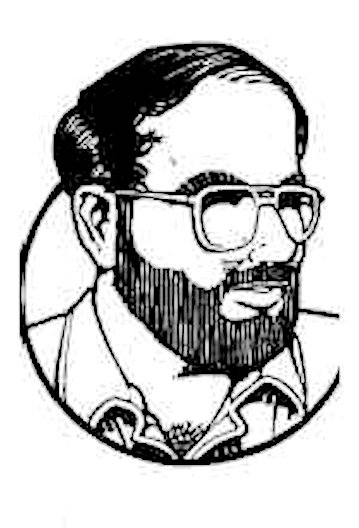
One of the most important figures in the business history of comics has passed away: Melchior “Mel” Thompson, a consultant who worked with comics shops in the 80s and 90s to define consumer habits and demographics. Thompson passed away on June 25th at the age of 73 or 74.
As the head of Melchior Thompson and Associates, starting in 1984 Thompson began working with comics shops as literally the first person to provide solid data and business best practices to the then wildly uneven world of the direct market. He also developed Comtrac, the first POS system that was tailored specifically to comics; at least one retailer was still using it in recent years.
There are several heartfelt tributes to Thompson which I’ll link to below, but from my own experience, Thompson’s guidance on consumer research and data was pretty revolutionary to those trying to grow the market back in those early days. Comics were still considered a guerrilla medium, and that a graduate of Harvard and M.I.T. could apply real world business practices to it was more like wizardry. He was a true trailblazer…and also a kind and funny man, according to those who knew him.
Mike Friedrich, another direct market pioneer who worked in Marvel’s early direct market department, was comics’ first agent and co-founded WonderCon, wrote an obituary for ICv2:
A chance encounter in the mid-1980’s with comics industry professional Mike Friedrich at the wedding of a mutual college friend led to Mel serving the comics retailing and publishing fields for over three decades. Mel initially provided customer research for publishers and store location services for new and expanding retailers. Later he singlehandedly developed Comtrac, the first comics-specific Point of Sale software.
Mel was an avid backpacker in his younger days as well as a professional choir singer. He is survived by his wife and three adult children. Donations can be made in his name to the Yosemite Conservancy.
Retailer David Wheeler also wrote a remembrance:
Mel came into the comics industry after a couple of decades of demographic work for mass market retailers, including home centers, home furnishing stores, supermarkets, drug stores, among others. He brought the knowledge and talents that he exercised for these major retailers to our industry and is believed to be the first person to use these scientific tools to help distributors and comics specialty retailers gain a better understanding of who our customers are.
Former DC President Paul Levitz wrote on Facebook (embedded above but quoted below) – many more memories in the comments.
Just learning simple facts like most of our audience shopped weekly, and concrete information about their demographics was vital to publishers making commitments to this new market. Before Mel, we had anecdotal information from retailers, but no true data.
David Scroggy, yet another direct market pioneer via his work with Pacific Comics and the Comic Book Expo, has a private post on FB, but I don’t think he’d mind my quoting it. The Comic Book Expo was an event formerly held on the Wednesday of the San Diego Comic-Con (back when it was just comics) that was a sort of trade show for the industry. Scroggy ran it for several years, and Thompson was a regular speaker.
He was introduced to me, and the entire comics specialty industry, by agent Mike Friedrich. Mel brought a lot to the table: he was an astute assessor of the comic shop retail arena, and identified a number of areas where he could improve the marketplace. He rolled up his sleeves and dived in.
…He improved store point-of-sale hardware, and, perhaps most significantly, developed and introduced proprietary inventory control and advance ordering software for comic book retailers. This was a turning point for many shops, bringing into focus the bewildering array of monthly titles, and how they performed in each specific retailer venue. It took the rudimentary cycle sheet system that most shops used, and dragged it into a more enlightened sphere of efficiency. It saved a lot of bacon in shops, cutting waste and directing resources more profitably.
Thompson also worked with the Eisner Awards for many years providing the vote counting services.
All of this may seem like long ago and faraway, but just in case anyone is working on a history of the comics medium, Mel Thompson is definitely a name that belongs there. His work helped turn a hobby into a business and today, a powerful industry.








